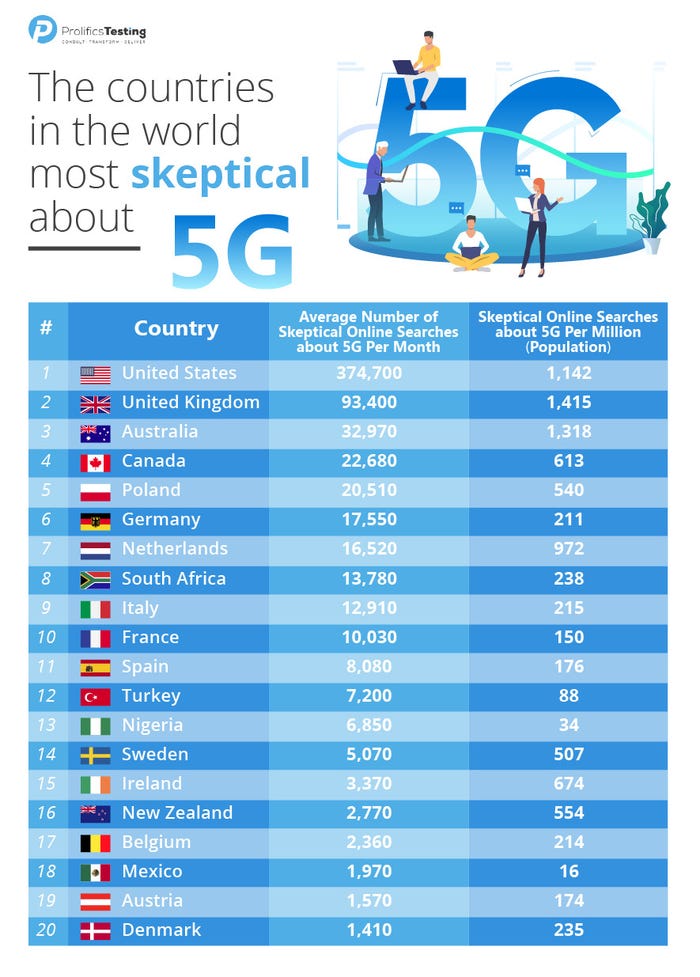Some people are still worried about the safety of 5GSome people are still worried about the safety of 5G
With all the current 5G hype within the industry it's easy to forget that not everyone is as excited about the new generation of mobile technology as those that are rolling it out.
March 3, 2021

With all the current 5G hype within the industry it’s easy to forget that not everyone is as excited about the new generation of mobile technology as those that are rolling it out.
Thankfully, last year’s incidences of 5G mast burning appear to have become a thing of the past – in the UK at least, although there are local press reports about a mast fire in Essex just last night – but people are still demonstrating their concerns over the tech in more subtle ways.
New online search data shows that in certain global markets significant numbers of consumers are asking Google to allay their concerns over the safety of 5G. And the UK is right up there.
A new study published by software testing services provider Prolifics Testing shows that the US is the most sceptical nation in absolute terms when it comes to 5G, recording an average of 374,700 searches per month relating to the perceived negative aspects of the technology. The UK comes in second, with 93,400. However, when the numbers are reworked to account for relative population sizes the UK finds itself at the top of the pile with 1,415 negative 5G searches per 1 million population, followed by Australia with 1,318 and the US in third place with 1,142.
Using online analytics tool Ahrefs, Prolifics Testing looked at consistently recurring Google searches on 5G (well, someone had to…or did they?). This covered questions about whether the technology is safe, is dangerous, poses a health risk, causes and/or spreads Covid-19, and so forth.

As the chart shows, there are many markets out there where consumers are less suspicious of 5G. There is moderate scepticism in Africa, with the major economies of South Africa and Nigeria making the top 20, although the latter ranks much lower when size of population is taken into account. Mexico also ranks fairly highly essentially by virtue of having a lot of people, while many major European countries are asking a lot of questions about the technology.
In all, Prolifics Testing analysed 5G search data in 155 countries across six continents.
Even in the markets topping the list, the actual number of people with niggling doubts about 5G is not that high. However, it is something that telecoms operators should keep an eye on, particularly in light of further search data analysed by Prolifics Testing.
The question ‘what is 5G?’ is typed into Google on average 127,400 times per month in the US; 24,200 times in the UK; and 15,100 times in third-placed Canada.
Again, these are not big numbers. But assuming that the same people are not repeatedly asking that same question over a period of several months, it starts to add up to quite a few people who are aware of 5G without understanding it. On a related note, the simple search term ‘5G’ came up 314,000 times per month in the US, 130,900 in Poland, and 120,000 times in the UK.
“We suspect users searching for this term will either be finding out more about the technology, learning about the benefits, or generally researching potential risks as a result of misinformation spread online,” Prolifics Testing said in its report.
This is starting to add up to some extra work for telcos’ PR and marketing departments, it appears.
About the Author
You May Also Like










.png?width=300&auto=webp&quality=80&disable=upscale)


_1.jpg?width=300&auto=webp&quality=80&disable=upscale)